Does the NDIS Fund Cleaning Services?
Yes. The NDIS does fund cleaning services — but it...
The role of professional cleaning in reducing health risks for NDIS participants cannot be overstated.
If you’re unfamiliar, the NDIS—or National Disability Insurance Scheme—is a vital support system in Australia designed to help people with disabilities live more comfortably, independently, and safely. Health and hygiene aren’t just background concerns for NDIS participants; they’re central to maintaining a good quality of life. Imagine living with an already compromised immune system or a chronic respiratory condition. For someone like that, a single germ-filled surface or a dusty corner can lead to severe health complications.
That’s where professional cleaning steps in as more than just a luxury—it’s a preventative health measure that can make a real difference. It’s not just about appearance; it’s about creating a truly safe environment. Regular, thorough cleaning done by professionals can directly impact the well-being and health of NDIS participants, offering peace of mind to families, caregivers, and participants alike.

Now, NDIS participants often have a unique set of health challenges. Many live with conditions that compromise their immune systems, making them more susceptible to infections. Others may have chronic respiratory issues like asthma, making them sensitive to airborne irritants. Some are even managing mobility restrictions, meaning they cannot clean hard-to-reach areas themselves.
A clean environment for these individuals is essential—it’s not just a “nice-to-have.” Think about it this way: a single exposure to something like mold or pet dander might cause minor irritation to most people, but for an NDIS participant, it could trigger a serious allergic reaction or respiratory episode. Bacteria and viruses on frequently touched surfaces can lead to infections, and for someone with a weakened immune system, that can turn into a serious health issue fast. The risk isn’t abstract; it’s a constant, daily challenge.
So, why go professional? Sure, anyone can wipe down a surface or vacuum a floor, but professional cleaners bring a level of skill and equipment that regular cleaning just doesn’t cover. We’re not just talking about using bleach or soap; professional cleaners have specialized training and tools to identify and eliminate hidden dangers that could impact someone’s health.
Professional cleaners are trained to recognize high-risk areas and are equipped with industrial-grade cleaning products designed to kill pathogens and remove allergens. They’re also meticulous about following protocols that minimize cross-contamination. For example, they use colour-coded cloths and gloves to clean different areas to ensure germs aren’t spread from one room to another—small steps that add a big difference in safety.
Imagine trying to clean a home where dust mites, pet hair, and pollen are all over, especially when a resident is highly allergic. You’d need special vacuums with HEPA filters to capture allergens, not just push them around. That’s the level of care professional cleaners provide. They’re trained to address specific health risks in a way that genuinely supports the unique needs of NDIS participants.
Let me tell you about Sam, one of our NDIS clients. Sam has had asthma since he was a child, and while he manages it well most of the time, his condition can be triggered by dust and mould. Before we began regular cleaning services, he was often sick—coughing, wheezing, and sometimes needing his rescue inhaler multiple times a day. His family tried their best to keep things clean, but it was tough; dust would always seem to settle back on surfaces no matter how much they wiped.
When we stepped in, we tailored our cleaning approach to Sam’s needs. We used hypoallergenic products that didn’t aggravate his lungs, and every cleaning included thorough dusting and vacuuming with HEPA filters to catch even the tiniest particles. Within weeks, Sam’s asthma episodes started to decrease. He didn’t need his inhaler as much, and his overall health improved. His mother even called us once, thrilled, saying she’d never seen him so comfortable in his own home.
One of the most essential aspects of professional cleaning is targeting pathogens—that’s, bacteria, viruses, and molds. These aren’t just invisible threats; they’re genuine health risks, especially in homes with shared spaces where germs can spread quickly. And for NDIS participants, the stakes are even higher. A simple cold virus for one person could mean hospitalization for someone with a compromised immune system.
Professional cleaners use hospital-grade disinfectants to eliminate these pathogens effectively. These aren’t your average store-bought cleaners; they’re designed to kill germs on contact and prevent new bacteria from growing. When we clean an NDIS home, we focus on high-touch areas—think doorknobs, bathroom fixtures, kitchen surfaces, and light switches—where germs tend to gather. Using these disinfectants makes a big difference, especially for participants who need that extra level of cleanliness to stay healthy.
Allergens like pet dander, pollen, and dust mites might be minor annoyances for some, but for many NDIS participants, they can trigger serious reactions. Dust mites, in particular, are everywhere—in bedding, carpets, and even upholstery. And while daily cleaning can help, it often doesn’t reach the level needed to keep these allergens under control.
That’s where professional cleaning steps in. We use specialized vacuums with HEPA filters, which are incredibly effective at capturing even the smallest particles, including dust and allergens. Hypoallergenic cleaning products are also a big part of our toolkit. We know how important it is for sensitive individuals to avoid harsh chemicals, so we choose products that are both effective and gentle. This careful approach to managing allergens can mean the difference between a participant experiencing constant irritation or breathing easily.
When it comes to preventing accidents, professional cleaning goes well beyond simply wiping down surfaces. We’re talking about creating an environment where NDIS participants can move safely without the fear of slipping or tripping. Imagine someone with limited mobility trying to navigate a floor that’s wet or cluttered—that’s an accident waiting to happen.
Our team pays special attention to ensuring that floors are not only clean but also safe. We use slip-resistant products on surfaces like bathroom and kitchen floors and ensure that areas are left dry and clutter-free. We also make sure that cords, rugs, and other potential hazards are secured or removed if they’re not necessary. These small details can drastically reduce the risk of injuries, especially for participants who already face mobility challenges.
A clean environment isn’t just about what you can see; it’s also about what you can smell. Persistent odours—from cooking, pets, or mould—can create an unpleasant environment and even impact mental well-being. For NDIS participants, unpleasant odours can be particularly distressing and can sometimes trigger physical reactions, especially if they’re sensitive to certain smells.
Professional cleaning services tackle odours at the source. Instead of masking smells with air fresheners, we focus on removing the cause. Whether deep-cleaning carpets, ventilating spaces, or using products that neutralize odours, we aim to create a fresh, welcoming environment. A clean-smelling home can lift a person’s mood, reduce stress, and contribute to overall mental and physical health, making a noticeable difference in the quality of life for NDIS participants.
Not all cleaning services are created equal, and when it comes to the well-being of NDIS participants, choosing the right one is essential. Look for companies with experience working specifically with NDIS clients. This means they understand the unique health needs involved and have protocols to meet them. Specialized training is also crucial. A good cleaning service should use safe, effective products tailored to sensitive individuals.
Another key factor is flexibility. An ideal service should be able to work around an individual’s schedule, ensuring minimal disruption and a more comfortable experience.
The NDIS has specific standards regarding health and safety, particularly when it comes to services provided to vulnerable individuals. Professional cleaning companies working with NDIS participants should be well-versed in these standards. For instance, they should understand hygiene requirements, infection control protocols, and safety guidelines that align with NDIS expectations.
Choosing a cleaning provider who adheres to these standards isn’t just about getting a better clean; it’s about protecting the health and safety of NDIS participants. It ensures that participants receive a level of care that respects and prioritizes their specific health needs.
How often should professional cleaning be done for NDIS participants?
A: The frequency of cleaning depends on individual needs. Some participants may benefit from weekly cleanings, especially if they have respiratory issues or allergies, while others might need a biweekly service. The size of the space, how often it’s used, and the participant’s health conditions all play a role in determining the best schedule.
What makes professional cleaning different from regular cleaning for NDIS homes?
Professional cleaning for NDIS homes goes beyond basic tidying. It involves specialized equipment like HEPA filters, hospital-grade disinfectants, and hypoallergenic products that reduce health risks. Trained cleaners know how to target high-risk areas and follow protocols that protect the participant’s health.
Are professional cleaning services for NDIS participants covered by the NDIS?
Some cleaning services are covered under NDIS funding, depending on the participant’s needs and funding arrangements. It’s always best to check with your provider or the NDIS directly to see what’s covered and discuss options for support.
How can I ensure the cleaning products used are safe for people with allergies or respiratory conditions?
When booking a cleaning service, communicate any specific health concerns upfront. Reputable cleaning providers can tailor their approach, selecting hypoallergenic or fragrance-free products as needed to keep the environment safe for individuals with sensitivities.
Professional cleaning plays a crucial role in reducing health risks for NDIS participants. It’s not just about appearances; it’s about creating a safe, healthy space where participants can thrive. A professionally cleaned environment can significantly enhance the quality of life, health, and well-being of vulnerable individuals, offering peace of mind to both participants and their families.
If you’re considering a cleaning service, think about the value it can bring—not just in cleanliness but in the security of knowing that someone with specific training and expertise is helping to create a healthier, safer space.
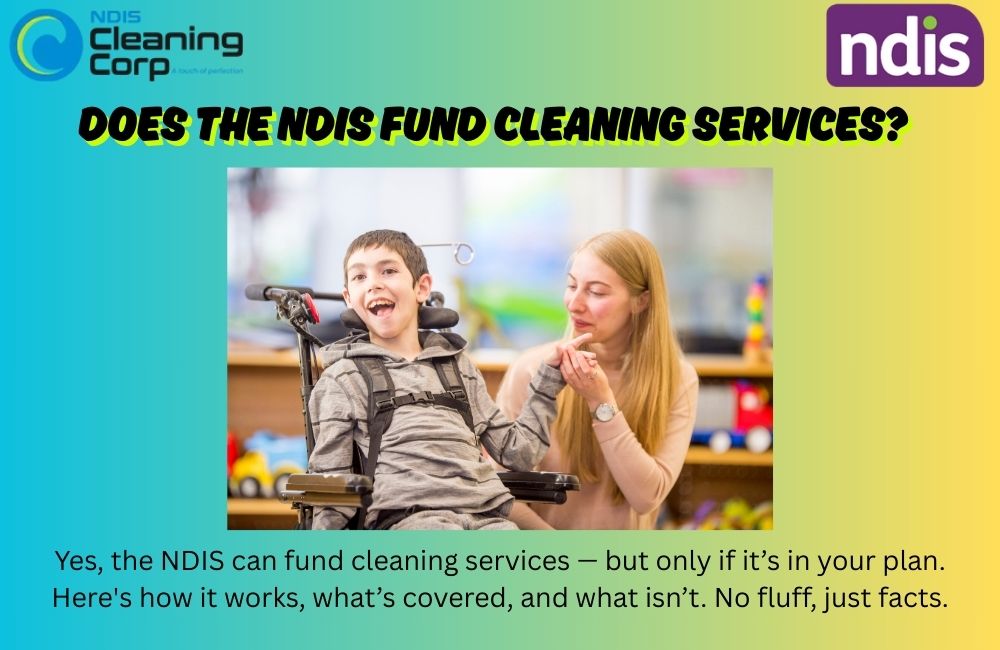
Yes. The NDIS does fund cleaning services — but it...
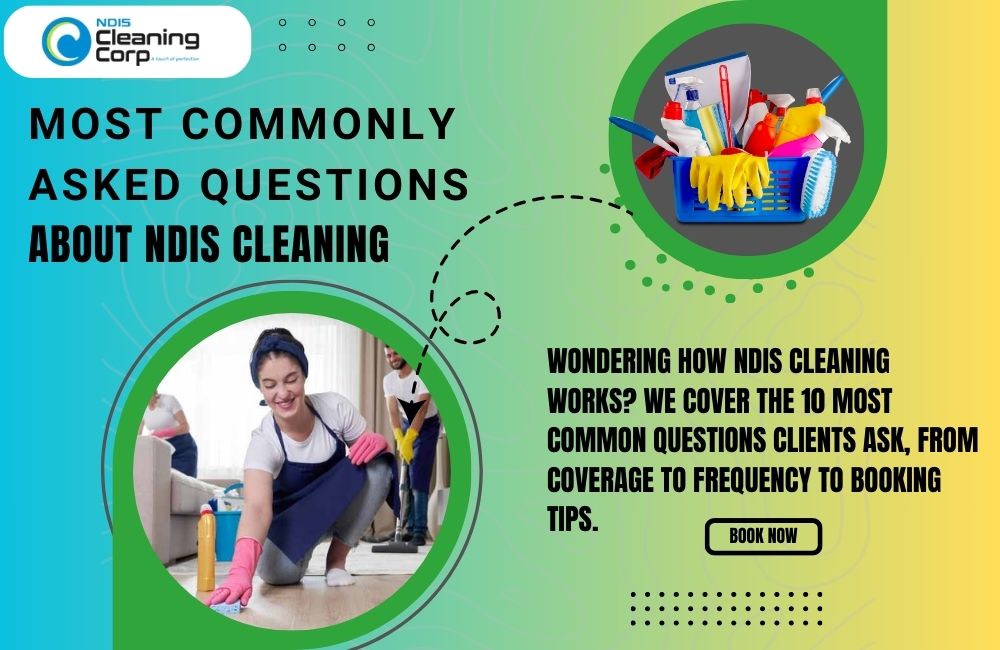
Alright, let’s get straight into it. These are the questions...
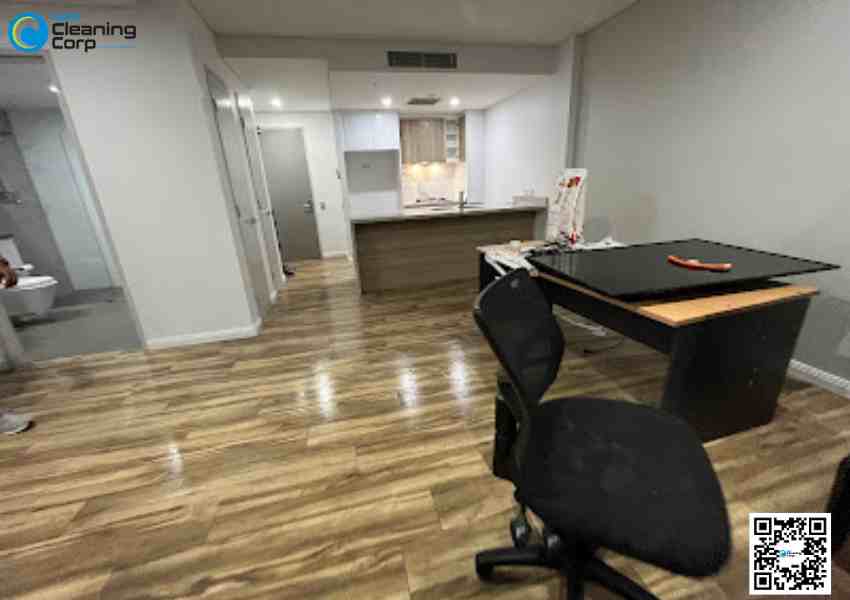
NDIS cleaning services are specifically designed to cater to the...
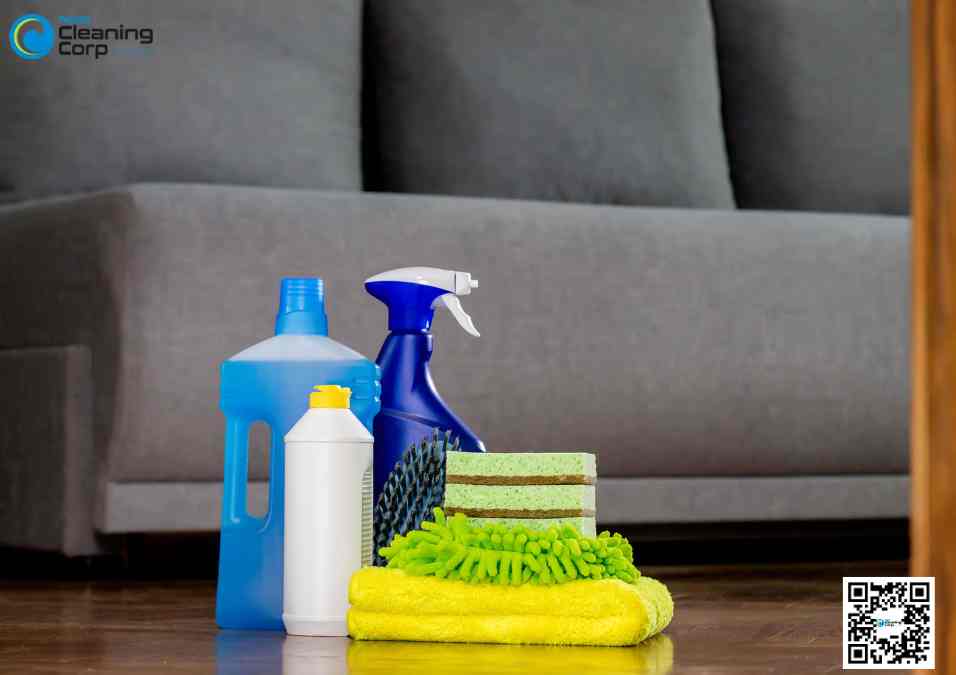
The role of professional cleaning in maintaining a safe and...
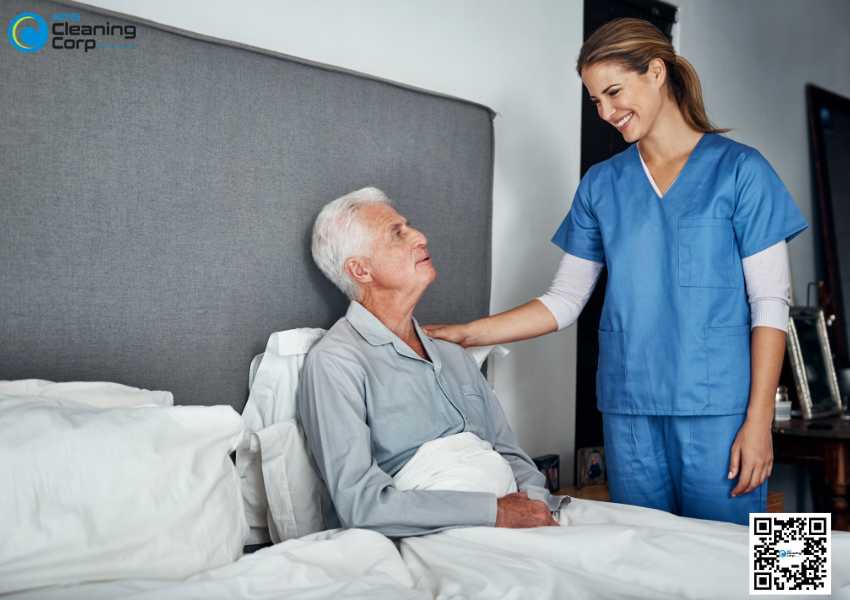
Studies consistently show that living in a clutter-free, organized space...